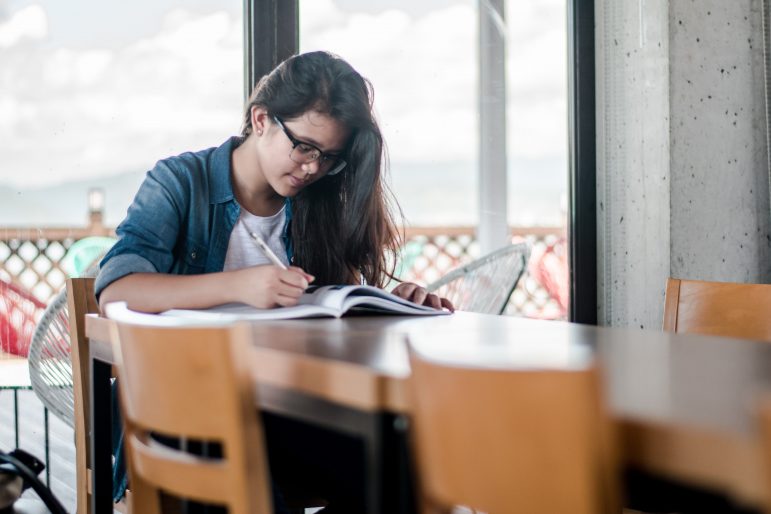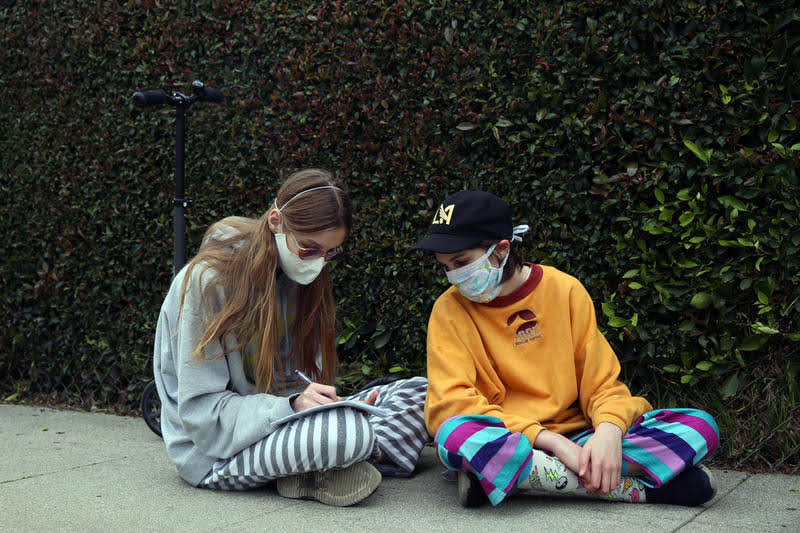Responding to districts’ complaints, the Newsom administration and legislative leaders are proposing revising requirements for educating and funding quarantined students through independent study this year. The changes will help but probably not fully satisfy school districts beleaguered by Covid outbreaks.
Among the significant revisions, the proposed legislation will make it clear that districts can:
- Provide remote learning to quarantined students.
- Receive funding starting from the first day of a student’s quarantine.
- Be eligible for funding without providing instruction during students’ quarantine if they are experiencing a staff shortage. However, they will qualify for this exception only after proving they exhausted strategies to staff positions and are left with no option but to forgo providing short-term learning.
Legislators must pass the language in Assembly Bill 167 (see section 19), the cleanup language for the budget “trailer bill” they passed in early July, before they recess Friday for the year.
Concerned by reports that too many students went weeks without receiving an education last year under the loose requirements, the Legislature eliminated distance learning this year and is allowing independent study as the only option this year that the state will fund for students who cannot attend school in person.
Independent study traditionally has been an alternative for students such as aspiring Olympians, child actors and other students for whom regular school schedules won’t work. It requires that individual families sign an independent study agreement outlining responsibilities and that a supervising teacher record assignments and document students’ work performance in order for the district to receive funding. This year, the Legislature added minimal live instruction and daily or weekly student contact requirements for long-term independent study — defined as lasting 15 or more days.
Not all districts are facing a crisis because of the spike in delta infections. Those that had planned for months to open virtual academies as an alternative and were quick to raise pay for substitute teachers, put Covid testing in place and were located in high-vaccination-rate counties are better positioned this fall.
But most school districts have complained that it has been difficult to hire additional teachers or substitutes to oversee independent study because many more families than anticipated are signing up for it amid concerns about potential Covid exposure. And now, with rising numbers of individuals, classrooms of students and entire schools headed into temporary closure because of exposure to infected students, some districts are warning that forcing quarantined students into independent study will overload, if not break, an education system already stretched thin.

“The new independent study law, which districts have had only weeks to adopt, does not work for our students in short-term quarantine periods for two simple but important reasons: paperwork and personnel,” wrote superintendents from 23 county offices of education and 50 school districts in a Sept. 3 letter to Gov. Gavin Newsom, Assembly Speaker Anthony Rendon and Senate President pro Tempore Toni Atkins. “We understand time is short and the issues are complex, but we urge you to take action to fix a system that no longer fits the reality of the pandemic.”
Districts have lobbied the Legislature to let them handle quarantined students and classrooms by switching to distance learning as they did last year and credit them for full student funding, as they would for other emergencies like wildfires.
At the same time, however, civil rights and student advocacy groups, including Children Now and the California State PTA, sent their own alert last week urging the Legislature to “reject any effort to roll back students’ rights relative to independent study.” Not only should the “modest protections” for families and students be retained, they said, but they should be improved, especially for English learners and students with disabilities, who are facing delays or denials of extra services.
Parents are reporting that the quality of independent study varies among districts and schools: Some families say they’re satisfied; others report there have been few assignments, taking little time, or that their children spent the first weeks at home, on a waitlist with no work, for lack of teachers.
With the proposals, Newsom and key legislators have not further expanded families’ rights under independent study, but they also rejected districts’ pleas to be held financially harmless during quarantines. They are insisting that the key provisions of independent study be applied to students in quarantine: that every family sign a contract outlining expectations, that teachers assign work equivalent to the time students would have learned in person and that teachers track and grade the work.
But the changes do add allowances, clarify that districts have flexibility under the law and recognize staff shortages could restrict districts’ ability to provide instruction during quarantine.
“I think there’s a deep acknowledgment of the staffing challenges. As someone told us, ‘You can give us all the funding (in Covid assistance), but we just don’t have the bodies,’” said State Board of Education Executive Director Brooks Allen, who sent out a summary of the changes to school district organizations and advocacy groups.
The qualified concession that, under dire conditions, understaffed districts could still be funded for unserved quarantined students is significant, said Barrett Snider, a lobbyist with the firm Capitol Advisors, who has taken the lead on behalf of districts. “At first read, these conditions seem reasonable and should allow schools to keep their funding whenever there is a Covid-related staff shortage,” he said.
For critical weeks preceding the reopening of school, the Legislature and the California Department of Education failed to clear up districts’ questions regarding ambiguities and vagueness in the revised independent study statute (see primarily sections 66 through 74 in Assembly Bill 130) that Allen said the amendments are intended to resolve.
Some districts assumed that they couldn’t let classroom teachers Zoom to quarantined students or revert to distance learning for entire classes or schools during a quarantine, since last year’s regulations for distance learning expired.
In fact, they can do simultaneous broadcasts with in-person students, communicate by chat or upload lessons, as long as they do so under the framework of independent study.
There are no dictates on methods of instruction for independent study lasting fewer than 15 days. But districts will have to negotiate the terms with their teachers — a potential obstacle.
Quarantines for Covid infection or exposure generally run from seven to 14 days, although long-term independent study, with more extensive instructional requirements, would apply to students who have been quarantined more than once for a total of more than 15 days.
The proposed amendments clarify two other issues:
- Districts can start to provide learning as soon as students enter quarantine; they have up to 30 days to get parents to sign the agreement for independent study.
- As long as they can prove that students have completed assignments showing learning comparable to in-person instruction, they can be funded back to the first day of quarantine.
Another new provision will double the time that a substitute teacher can be assigned to a class from 30 to 60 days — another measure intended to address the substitute shortage.
As reported earlier in the Exedra, Piedmont Unified has embarked on a joint distance learning plan with Pleasanton Unified.
